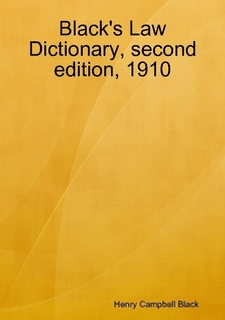The management and settlement of the estate of an intestate, or of a testator who has no executor, performed under the supervision of a court, by a person duly qualified and legally appointed, and usually involving
(1) the collection of the decedent's assets;
(2) payment of debts and claims against him and expenses;
(3) distributing the remainder of the estate among those entitled thereto. The term is applied broadly to denote the management of an estate by an executor, and also the management of estates of minors, lunatics, etc., in those cases where trustees have been appointed by authority of law to take charge of such estates in place of the legal owners. Bouvier; Crow v. Hubard, 62 Md. 565. Administration is principally of the following kinds, viz.: Ad colligendum bona defuncti. To collect the goods of the deceased. Special letters of administration granted to one or more persons, authorizing them to collect and preserve the goods of the deceased, are so called. 2 Bl. Comm. 505 ; 2 Steph. Comm. 241. These are otherwise termed "letters ad colligendum," and the party to whom they are granted, a "collector." An administrator ad colligendum is the mere agent or officer of the court to collect and preserve the goods of the deceased until some one is clothed with authority to administer them, and cannot complain that another is appointed administrator in chief. Flora v. Menmce, 12 Ala. 836. Ancillary administration ls auxiliary and subordinate to the administration at the place of the decedent's domicile; it may be taken out in any foreign state or country where assets are locally situated, and is merely for the purpose of collecting such assets and paying debts there. Cum testamento annexo. Administration with the will annexed. Administration granted in cases where a testator makes a will, without naming any executors; or where the executors who are named in the will are incompetent to act, or refuse to act; or in case of the death of the executors, or the survivor of them. 2 Bl. Comm. 503, 504. De bonis non. Administration of the goods not administered. Administration granted for the purpose of administering such of the goods of a deceased person as were not administered by the former executor or administrator. 2 Bl. Comm. 506; Sims v. Waters, 65 Ala. 442; Clemens v. Walker, 40 Ala. 198; Tucker v. Horner, 10 Phila. (Pa.) 122. De bonis non cum testamento annexo. That which is granted when an executor dies leaving a part of the estate unadministered. Conklin v. Egerton, 21 Wend. (N. Y.) 430; Clemens v. Walker, 40 Ala. 189. Durante absentia. That which is granted during the absence of the executor and until he has proved the will. Durante minori estate. Where an infant is made executor; in which case administration with wlil annexed is granted to another, during the minority of such executor, and until he shall attain his lawful age to act. See Godo. 102. Foreign administration. That which is exercised by virtue of authority properly conferred by a foreign power. Pendente lite. Administration during the suit. Administration granted during the pendency of a suit touching the validity of a will. 2 Bl. Comm. 503; Cole v. Wooden, 18 N. J. Law, 15, 20. Public administration is such as is conducted (in some jurisdictions) by an officer called the public administrator, who is appointed to administer in cases where the intestate has left no person entitled to apply for letters. General administration. The grant of authority to administer upon the entire estate of a decedent, without restriction or limitation. whether under the intestate laws or with the will annexed. Clemens v. Walker, 40 Ala. 198. Special administration. Authority to administer upon some few particular effects of a decedent, as opposed to authority to administer his whole estate. In re Senate Bill, 12 Colo. 193, 21 Pac. 482; Clemens v. Walker, 40 Ala. 198.
—Letters of administration. The instrument by which an administrator or administratrix is authorized by the probate court, surrogate, or other proper officer, to have the charge and administration of the goods and chattels of an intestate. See Mutual Ben. In Ins. Co. v. Tisdale, 91 U. S. 243, 23 L. Ed. 314.
Definition of Administration Of Estates
Advertisement
Definitions from Black's Law Dictionary: 2nd Edition and Ballentine's Law Dictionary as are available for each term in each dictionary.
-
Black's Law Dictionary: 2nd Edition
